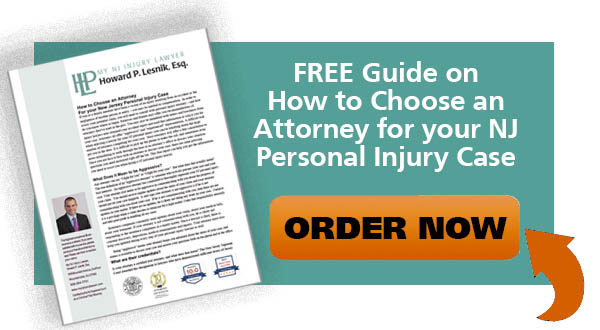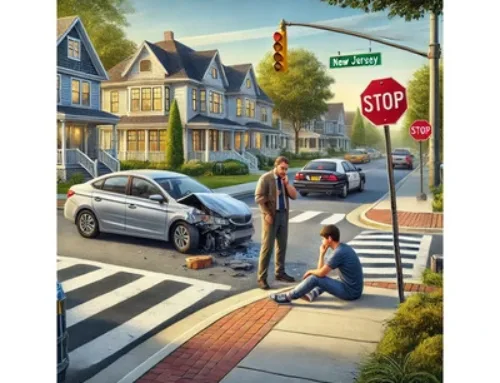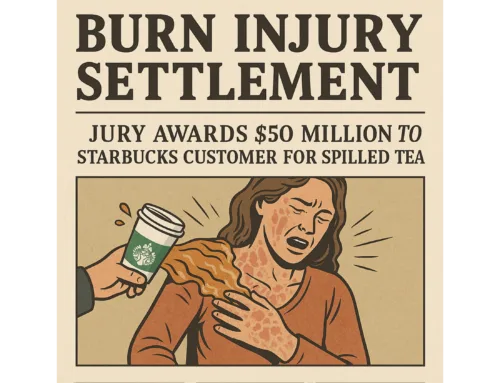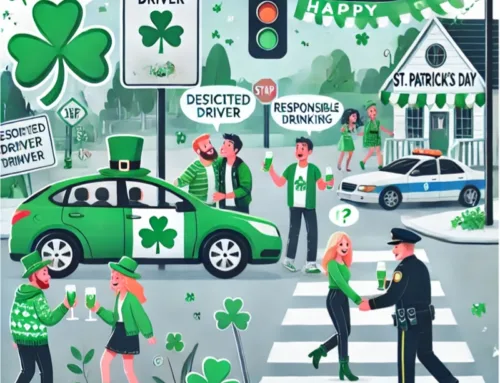After suffering an injury in any accident when someone else is at fault, you are generally advised to wait until you have reached the point of maximum medical improvement before sending a demand letter for injury compensation from the other party’s insurance company. “Maximum medical improvement” refers to the point at which your treating doctors believe that you have healed as fully as you are likely to heal, and that further medical intervention will not result in any additional improvement. For some patients, this means that they have recovered completely from their injuries, as though the accident never happened. Unfortunately, many accident victims are not so lucky. When they reach their maximum medical improvement, they still have some pain, stiffness, limited mobility, or other impairment that did not exist before their accident. These impairments are not expected to improve with time or treatment, remaining a permanent fixture in the patient’s life. These permanent injuries may prevent the accident victim from returning to a previous job or recreational activities or impose other disruptive changes in the victim’s life. These long-term consequences are compensable harm, just as much as the medical bills, lost wages, and physical and emotional suffering that the victim incurred during treatment.
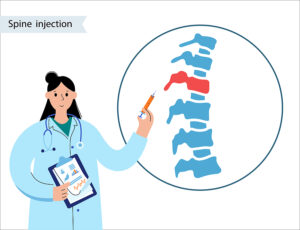 Many kinds of injury can result in residual impairment. Any kind of joint damage has the potential to give rise to future instability, pain, or mobility problems, which can be exacerbated by the aging process, but might never have been a problem had the original injury never occurred. The spinal column, with its cartilage discs and small bones encasing the spinal cord, is a common site for residual injury, as any imperfection or weakness worsens with time and wear, restricting range of motion or causing debilitating pain.
Many kinds of injury can result in residual impairment. Any kind of joint damage has the potential to give rise to future instability, pain, or mobility problems, which can be exacerbated by the aging process, but might never have been a problem had the original injury never occurred. The spinal column, with its cartilage discs and small bones encasing the spinal cord, is a common site for residual injury, as any imperfection or weakness worsens with time and wear, restricting range of motion or causing debilitating pain.
Another common residual injury is scarring (or other cosmetic disfigurement). Scar tissue is stiffer and thicker than uninjured tissue, which can result in a loss of flexibility and tactile sensitivity in the affected area. In addition, the effect of scarring on the patient’s appearance, and therefore psychological and social well-being, cannot be ignored. We live in a society that often hyper-focuses on appearance and having an obvious scar can easily make a person feel self-conscious or uneasy in social situations and may affect how other people respond to the injured person. In the past, society’s persistent sexism came into play, because a woman’s appearance tended to be considered more important to her social life than a man’s, and imperfections in women are often judged more harshly. Historically, a woman with obvious visible scarring was more likely to receive a higher compensation offer than a man with the same injury, because she is perceived as being more severely harmed by it. Today, this should not be the case. But insurance companies may still try to play the gender-card in some cases. The compensation value of scarring depends on its location on someone’s body, the appearance of the scar and pain or numbness at the scar. Scars in places normally covered by clothing are usually only compensated if they are extensive enough to inhibit mobility or cause the patient enough distress to change their behavior. On the other hand, a scar on the face or neck is often awarded significant compensation even if it is relatively minor, because it is not easily hidden and will be seen by everyone the patient interacts with. Today, with the popular usage of social media, TikTok, Snap Chat, FaceTime, Instagram and Twitter, appearance can be everything. YouTube celebrities and Influencers can earn more money than TV actors, Movie actors, musicians and other performers, these celebrities depend on their appearance in videos and photographs posted to social media Apps every day.
Permanent injuries are particularly important to note in certain kinds of injury claims. In New Jersey, auto insurance companies offer two kinds of policies: No Threshold, and Limitation on Lawsuit. Limitation on Lawsuit policy is less costly and is often presented as the default option in insurance sales, resulting in a hefty majority of New Jersey drivers carrying Limitation on Lawsuit policies. Under these policies, there are strong restrictions in place regarding when you can sue for injury compensation. If you are covered under a Limitation on Lawsuit policy, you can only sue for damages if your injuries fall under at least one of the following categories:
- Death
- Dismemberment
- Serious Disfigurement or scarring (must be significant from an observer’s perspective)
- Displaced fractures
- Loss of a fetus
- Permanent injury
Clearly, permanent injury is the most varied and inclusive category on this short list, as many kinds of injury can result in permanent effects. Proving that your accident has left you with a permanent injury, however, can be an uphill battle. Your treating doctor is required to sign a document stating, under oath, that “objective” medical testing reveals that your injury is permanent – “objective” meaning that the test doesn’t rely on patient response. Many doctors avoid signing any document that may require them to testify in court, even if their patient’s injuries clearly fit the description of a permanent injury, because of the professional stakes involved for them. Regrettably, insurance companies have no trouble finding doctors willing to go on record saying the opposite, for a fee. You can think of the Certification of Permanent Injury as your pass, or ticket, to proceed with your claim. You may not go further without it, but it certainly does not guarantee a positive outcome. The insurance company’s “hired gun” doctor will stand in your way, saying there is no permanent injury. The insurance company’s attorney may say the damage to your vehicle was not sufficient to translate into a serious impact, or forceful enough to injure you seriously (photos of the damage to your vehicle are admissible for consideration by a jury), or there may be medical records found that show you were injured before. These issues have to be forthrightly addressed. An experienced personal injury attorney will be able to guide you through the maze of possible scenarios and advise your best course of action.
Contact MyNJInjuryLawyer Howard P. Lesnik
If you or a loved one suffered an injury in an accident in NJ, you should contact an attorney familiar with handling these claims. An experienced NJ Injury Lawyer will know how to obtain medical records, videos, photographs, experts, locate witnesses and contact the insurance company so you can make a claim for your injuries.
My NJ Injury Lawyer Howard P. Lesnik, Esq. offers complimentary strategy sessions to address any issue or questions you may have for your injury claim in NJ.
Please contact NJ Injury Lawyer Howard Lesnik, Esq., immediately if you were involved in an accident. I personally handle NJ personal injury cases on a regular basis. Please contact me now by email, by phoning 908.264.7701, or by completing the form to the right to schedule your complimentary 30-minute strategy session. Call me direct and I will answer 5 questions that you have about your potential claim.


